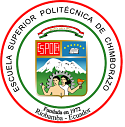Data analysis for efficient schedule optimization and Machine Learning
DOI:
https://doi.org/10.47187/perspectivas.6.2.223Keywords:
Machine learning, automation, schedulingAbstract
In recent years, the integration of machine learning (ML) techniques into school management systems offers several opportunities to enhance efficiency and decision-making in the educational field. Applying ML in education can yield significant benefits. However, it is important to note that the successful integration of ML techniques into school management systems requires a robust data infrastructure, proper data collection, and consideration of ethical and privacy issues. Furthermore, ML should not replace human interaction in education but rather complement and improve it by providing educators and students with additional tools for educational success. Due to the increased complexity in the curriculum of the Computer Systems Engineering program, it is necessary to carry out a more reliable and automated prediction of semester schedules. To address the manual scheduling generation problem, a comprehensive analysis of the existing process was conducted. This involved gathering relevant information on how semester schedules are currently generated in the educational institution. The current approach used for scheduling was studied, along with an analysis of the problems and limitations associated with the manual process. Various ML techniques that could be applied to the scheduling generation problem were investigated. This could include optimization algorithms, clustering or classification algorithms, genetic algorithms, or other machine learning approaches that can be adapted to the specific problem.
Métricas
References
J. O. Yunga Pedraza, «Estudio del estado del arte sobre la predicción de deserción universitaria usando machine learning,» de Universidad Salesiana, Ecuador, 2023.
A. U. Castaneda, «Un viaje hacia la inteligencia artificial en la educación,» Realidad y Reflexion, pp. 121-136, 2022.
C. Russo, «Tratamiento Masivo de Datos Utilizando Técnicas de Machine Learning,» REDI, pp. 131-134, 2016.
A. D. Luca, «Uso de la Técnica de Transfer Learning en Machine Learning para la Clasificación de Productos en el Banco Alimentario de La Plata,» SEDICI, pp. 1-16, 2021.
B. A. A. BENITEZ, GENERACION DE HORARIOS MEDIANTE SISTEMAS, México, D.F.: Instituto Politécnico Nacional. Centro de Investigación en Computación, 2007.
E. B. Cañón, «Modelo predictivo del progreso en el aprendizaje de los estudiantes de uniminuto aplicando técnicas de machine learning,» de Scielo, Mexico, 2021.
D. Hinestroza Ramírez, «El Machine Learning a través de los tiempos, y los aportes a la humanidad,» Universidad Libre, pp. 1-17, 2019.
keepcoding, «keepcoding.io,» 2 diciembre 2022. [En línea]. Available: https://keepcoding.io/blog/ciclo-de-vida-de-un-proyecto-en-machine-learning/.
O. Simeone, «A Very Brief Introduction to Machine Learning With Applications to Communication Systems,» de IEEE, 2018.
B. Zarco García, «Algoritmos de clasificación supervisados y semi-supervisados: análisis y comparativa,» UPM, pp. 1-12, 2020.
"Introduction to Machine Learning with Python" de Andreas C. Müller y Sarah Guido. Libro "Pattern Recognition and Machine Learning" de Christopher M. Bishop.
"Introduction to Information Retrieval" de Christopher D. Manning, Prabhakar Raghavan, y Hinrich Schütze.
"An Introduction to the Analysis of Variance" de Ronald A. Fisher.
"Logistic Regression: A Self-Learning Text" de David G. Kleinbaum y Mitchel Klein. Libro "Introduction to the Practice of Statistics" de David S. Moore, George P. McCabe y Bruce A. Craig.
"The Elements of Statistical Learning" de Trevor Hastie, Robert Tibshirani y Jerome Friedman.
“Support Vector Machines" de Nello Cristianini y John Shawe-Taylor.
Víctor Fabio Suarez, Omar Danilo Castrillón, «Diseño de una metodología basada en técnicas inteligentes para la distribución de procesos Académicos en ambientes de trabajo job shop.
Michael W. Carter, “A Comprehensive Course Timetabling and Student Scheduling System at the University of Waterloo” 2001
Elias Ventura, Eva Marcela, Mendoza Pacas, Carlos Rafael, “Análisis y diseño de un planificador automatizado de horarios universitarios”, 2002
Mireya Flores Pichardo, “Revisión de Algoritmos Genéticos Aplicados al Problema de la Programación de Cursos Universitarios” 2011.
Downloads
Published
How to Cite
Issue
Section
License
Copyright (c) 2024 Rogelio Escobedo Mitre, Ángeles Quezada Cisnero, Bogart Yair Marquez Lobato, Arnulfo Alanis Garza

This work is licensed under a Creative Commons Attribution 4.0 International License.
Copyright
The authors of the manuscripts will retain their copyright on their articles published in Pespectivas Journal. These rights allow the authors to present their manuscripts in public, prepare derivative works, reproduce them physically by printing and distribute them on their social or research networks. These rights will remain unchanged as long as the authors respect the publication and free access policy of Perspectivas Journal.
Publication Rights
Perspectivas Journal reserves all first publication rights on each of the articles that the authors have sent to its review and publication process. It implies that authors will only exercise their copyright if they state the source and origin of the publication correctly, mainly when they distribute, share, present, or use their articles' total or partial content.














